Galvanising Hope.
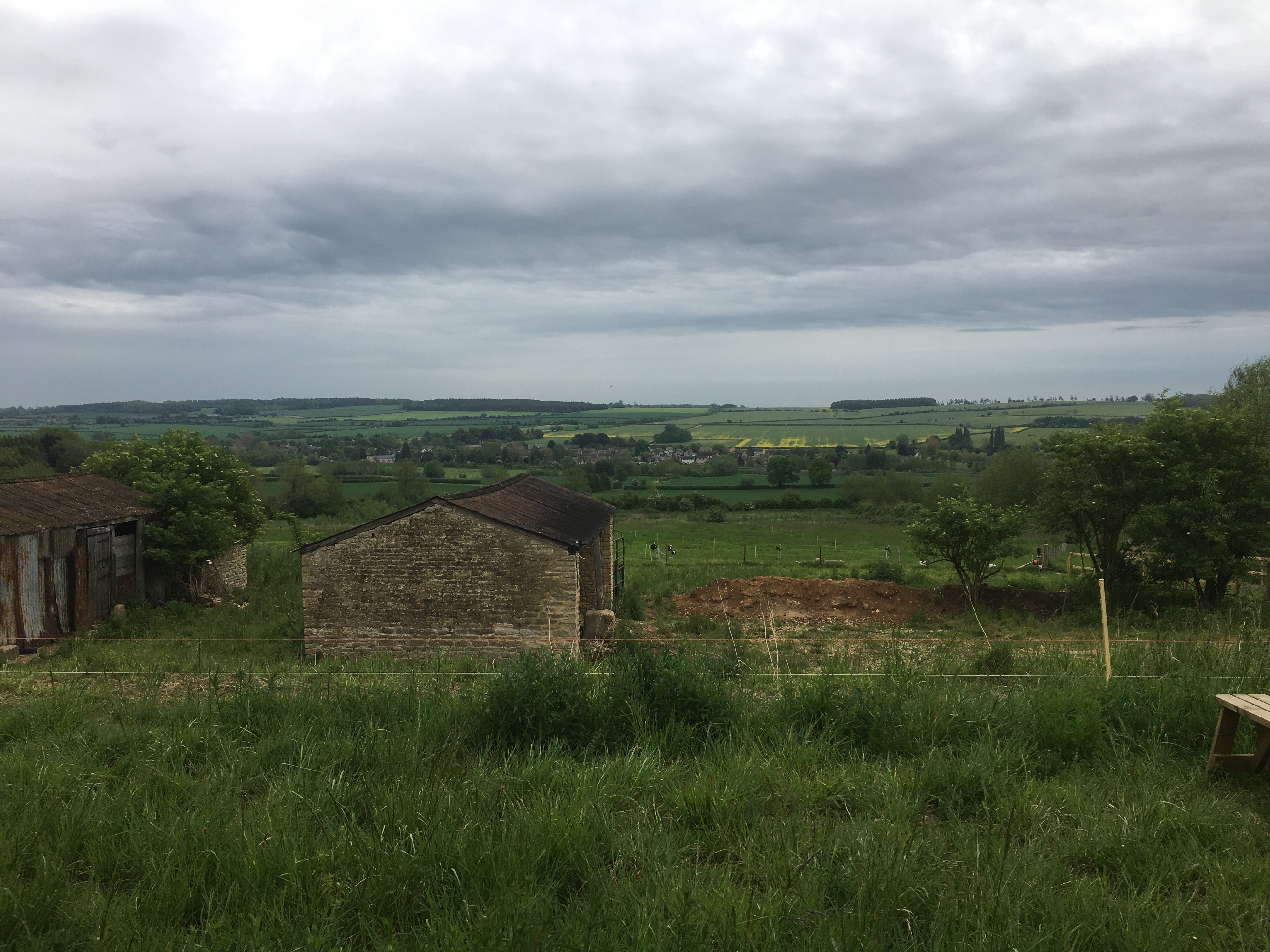
A week has been bookended by Festivals. The first being the inaugural Farming, Food and Literature Festival at FarmED, a not for profit community interest farm, food and education centre in the Cotswold hills, with far-reaching views over the Evenlode valley and the Wychwoods. The festival partners were Chelsea Green Publishing – and several of their authors (including me) were invited to speak in the Library or the Conference Barn. There were farm walks and workshops, panel discussions, interviews and talks, around the varied but intrinsically linked topics of agroforestry, sustainable food production, regenerative farming, land justice, inclusivity and diversity, and wildlife and agroecology. Lunch, pastries and cake (mostly from farm and locally grown produce) at FarmEAT were to die for – and the festival was sold out.
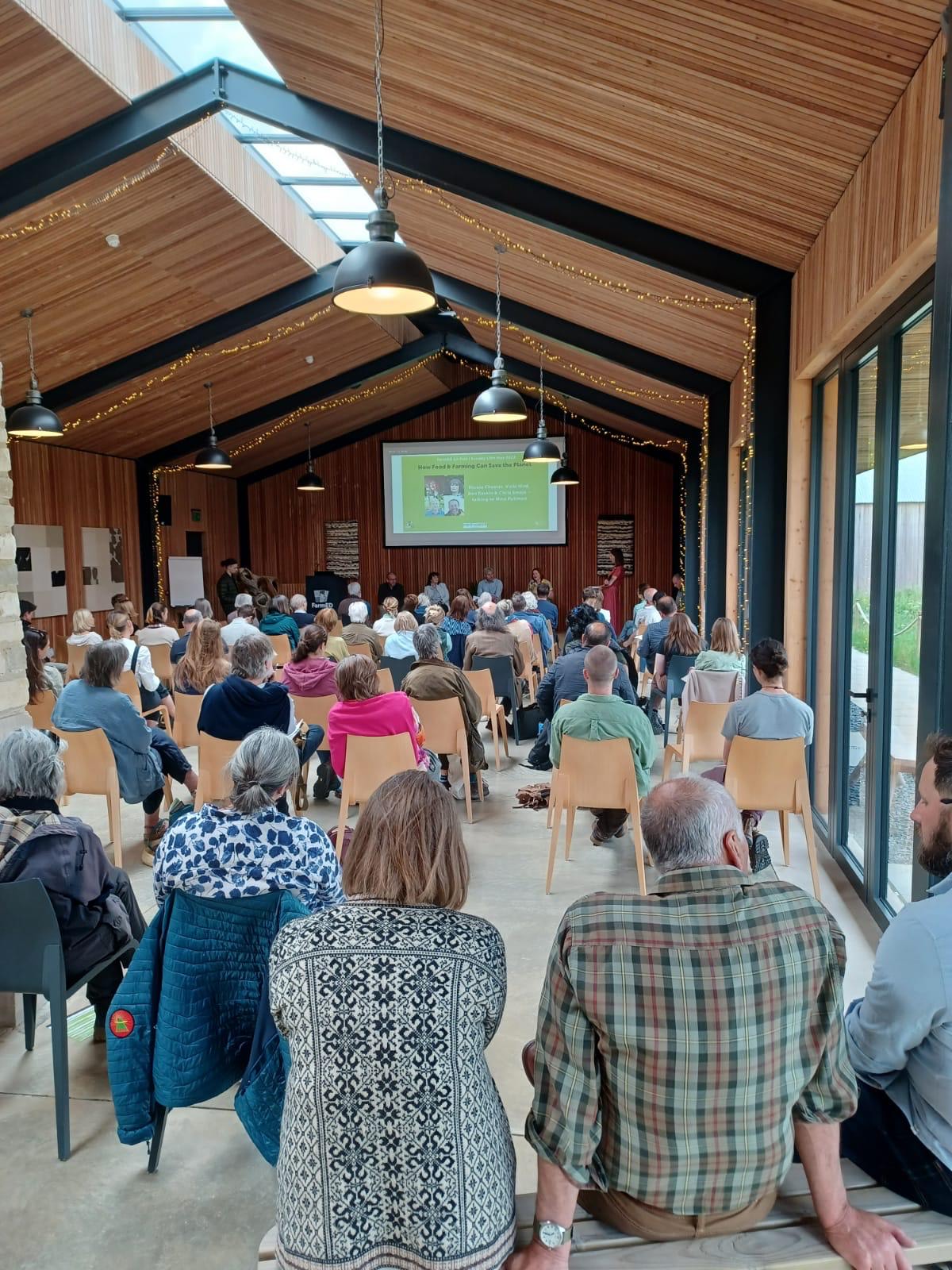
I began the day on a panel, with Chris Smaje (A Small Farm Future) Ben Raskin (The Woodchip Handbook) and Vicki Hird (Rebugging the Planet). Chaired perceptively by Nina Pullman, journalist and editor of Riverford’s (brilliantly named) magazine Wicked Leeks, we were asked to imagine our ideal future. I began with a childhood dream – memories of my much-loved ‘bedroom carpet farm’ of Britains models. But this served to illustrate what, even then, was missing from a nostalgic landscape that probably only really existed in my pony books: primarily, people and wildlife.
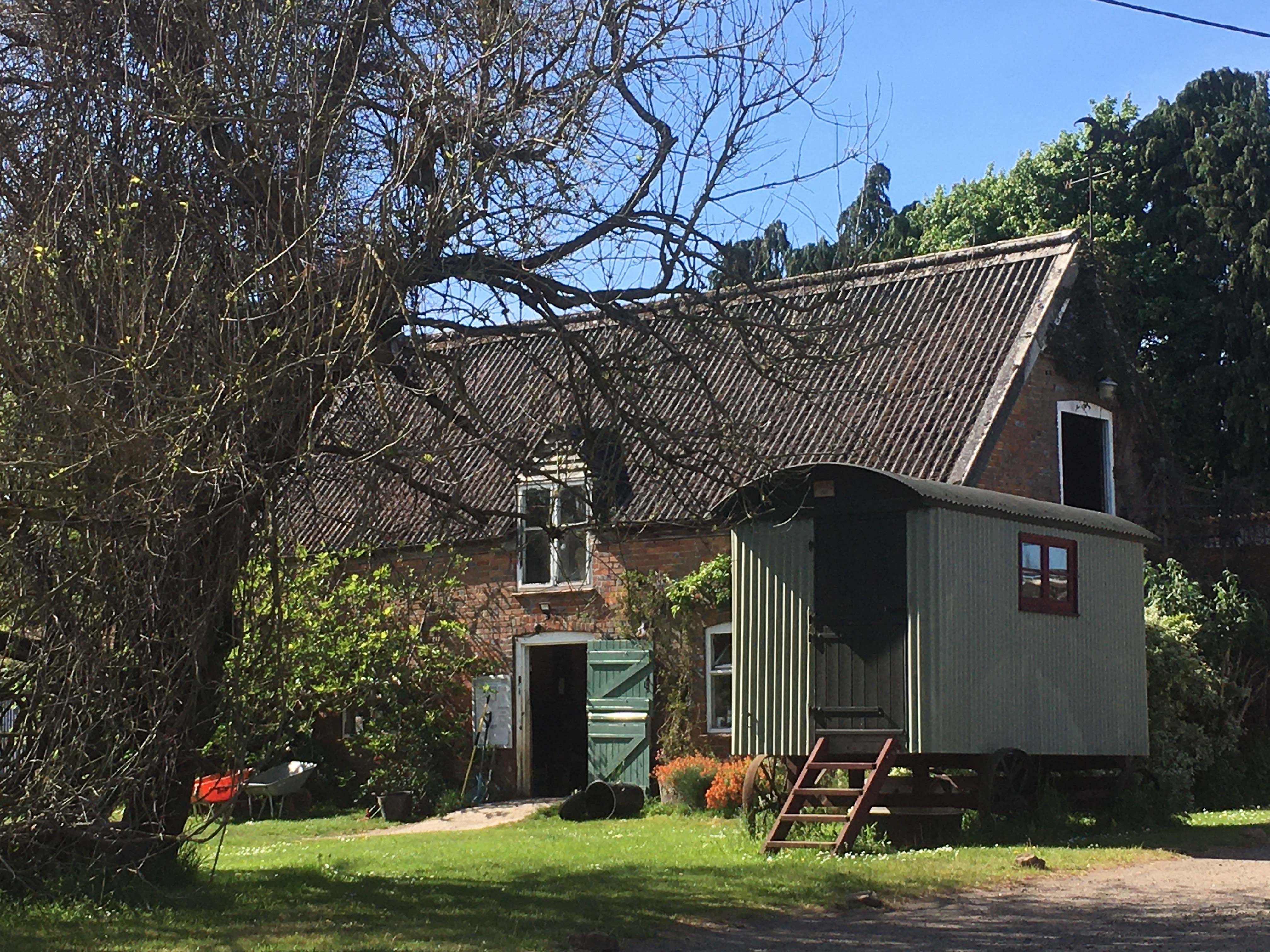
The talks that progressed throughout the day were thought-provoking, exciting and challenging – with speakers and organisers self-aware of shortcomings, scope, access and scale; of what needs to change in this world of farming, people and wildlife, so that everyone is included. Discussion was lively, engaged and galvanising and the farm walks, revelatory.
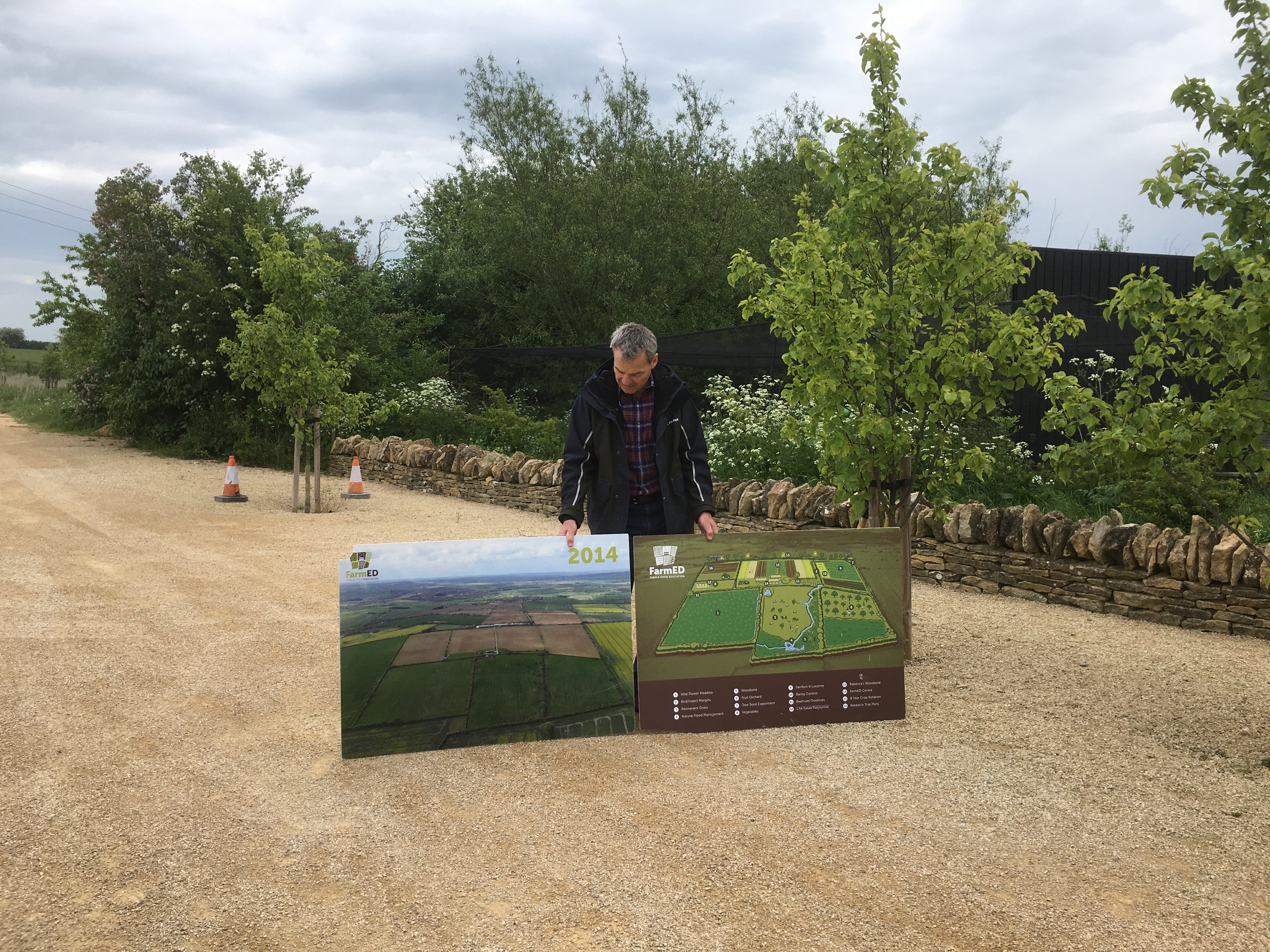
Ian Wilkinson, founder and director, showed us herbal leys and green manure ‘cover crops’, full of clovers, vetches, trefoils and ‘anthelmintic’ sainfoin (a natural wormer) that fix nitrogen, build better soil, improve water catchment, capture carbon and enhance nutrient cycling. The increase in biodiversity was there for all to see, with a spadeful of healthy, ‘clean’ earthy smelling, wriggling soil, and insects and birds all around. FarmED opened just last year. It’s ambitious, connective and quietly revolutionary, a ‘farm as an ecosystem’.
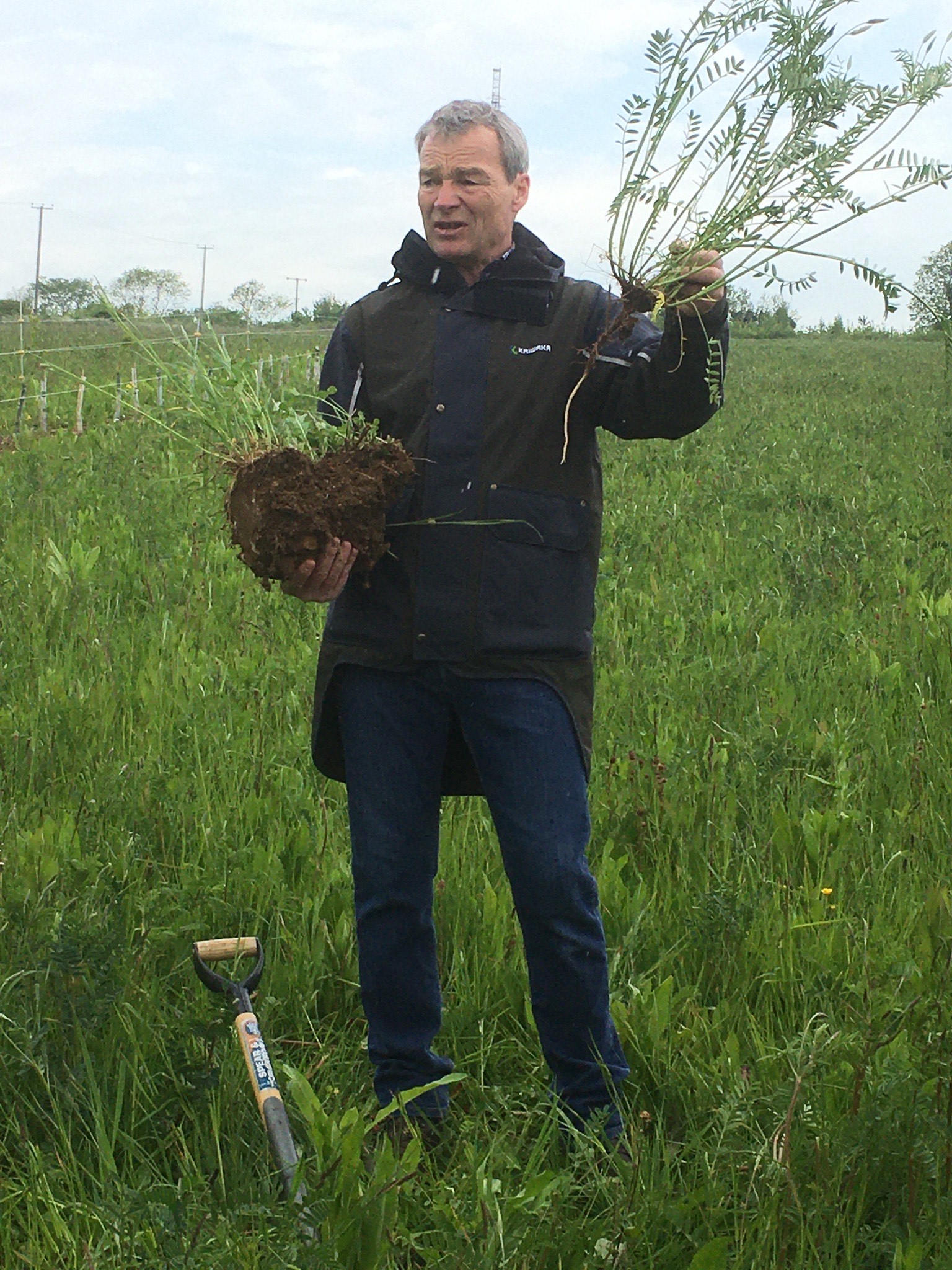
The second festival was ‘Wood Fest’, a family friendly event of music, workshops and nature that runs on 100% renewable energy across 3 days, at Braziers Park in Oxfordshire. We watched bands in the ‘Treebadour Tent’ and sparked ideas and action for nature in ‘Hedgehog’ Hugh Warwick’s Kindling tent. It was always going to be hard, following the brilliant and controversial George Monbiot, but I had a nice crowd and was able to share the stage with both Hugh and his brilliant ‘Trojan Hedgehog’ ideas for positive environmental change, and Helen Beynon, author of Twyford Rising – a book about the first big, modern environmental protests, and a much-admired influential environmentalist of mine.
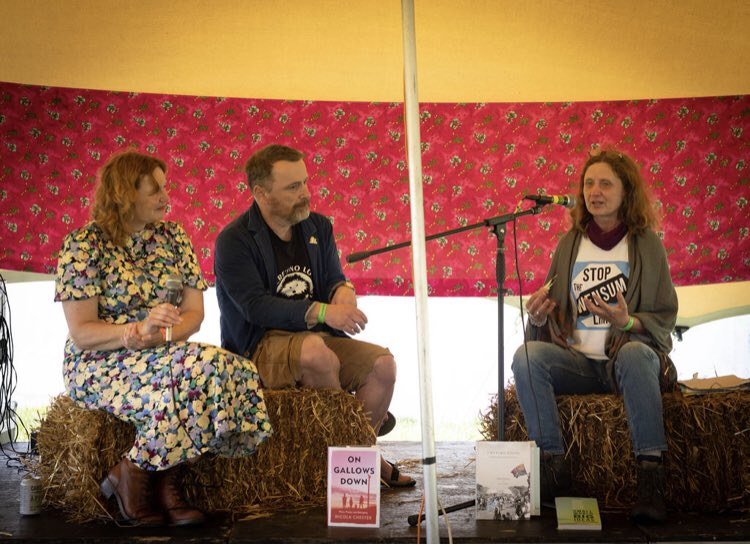
Both events were incredibly uplifting and hopeful, against the constant, increasing background roar of the biodiversity and climate crisis, when too few people are engaging or acting on the science.
Mid-week, at around 9.45, I looked up from my writing hut keyboard in search of the right phrase – and through the little bow window caught a big, fiery, blue-green ball plummeting across the sky. It moved relatively slowly and I realised, as it came through the low clouds and began to break up into fizzing pieces, that it was a fireball – a meteor that has come through the earth’s atmosphere to land probably in Wales. A misty veil of a tail followed it and hung there for a few, afterburn seconds. It was breathtaking, awe-inspiring, and sobering. It reminded me of both the beauty and fragility of the earth – and the film, Don’t Look Up. We have it in our power to change the trajectory we’re on. We could do it now.
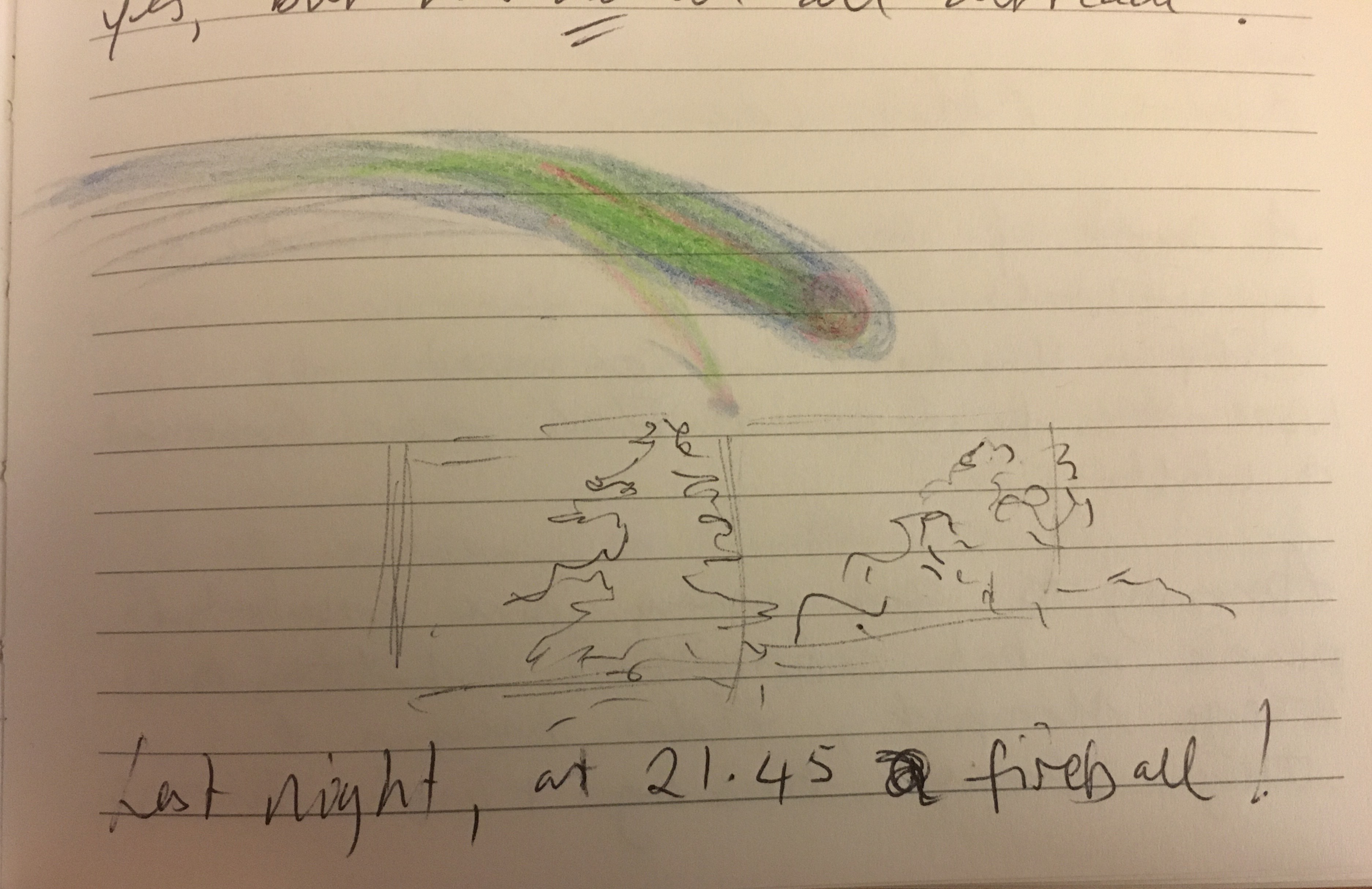
Leave a Reply to nicolawritingCancel reply